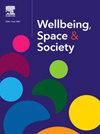犯罪和心理健康:在智利检查感知不安全感、犯罪受害和心理困扰之间的联系
IF 2.2
Q2 GEOGRAPHY
引用次数: 0
摘要
居民区的犯罪是心理健康和福祉的关键社会决定因素,但很少有研究将客观和主观犯罪措施结合起来,或检查感知不安全感对心理健康和生活满意度的因果影响。目的本研究旨在探讨智利居民居住环境中感知的不安全感、犯罪受害、心理健康和生活满意度之间的关系。方法:我们利用了一项调查(n=10,686)中具有全国代表性的数据,该调查结合了智利犯罪的客观和主观测量。心理健康使用患者健康问卷-4进行测量。为了检验感知不安全感与心理健康之间的关系,我们使用了工具变量回归模型,调整了相关的社会人口因素和健康前因。结果居住环境中的不安全感和犯罪受害感与较高水平的心理困扰相关。犯罪受害表现出与生活满意度降低密切相关,而感知到的不安全感则不然。标准化分析表明,安全感每降低一个标准偏差,PHQ-4得分就会增加9%,而犯罪受害程度的相应上升,则会增加7%,这表明心理健康也存在类似的模式。此外,警察在社区的存在与更好的心理健康和更高的生活满意度有关。结论居住环境中的不安全感和犯罪受害是影响心理健康状况的重要因素。减轻与犯罪和不安全感有关的压力源的社会政策可能有助于改善人口的心理健康。本文章由计算机程序翻译,如有差异,请以英文原文为准。
Crime and mental health: Examining the associations between perceived insecurity, crime victimization, and psychological distress in Chile
Background
Crime in residential areas is a key social determinant of mental health and well-being, yet few studies incorporate both objective and subjective crime measures or examine the causal impact of perceived insecurity on mental health and life satisfaction.
Objective
This study aimed to examine the associations between perceived insecurity within residential contexts, as well as crime victimization, and mental health and life satisfaction in Chile.
Method
We utilized nationally representative data from a survey (n=10,686) that combined both objective and subjective measures of crime in Chile. Mental health was measured using the Patient Health Questionnaire-4. To examine the association between perceived insecurity and mental health, we used an instrumental variable regression model, adjusting for relevant sociodemographic factors and health antecedents.
Results
Perceived insecurity and crime victimization in residential settings are associated with higher levels of psychological distress. Crime victimization shows a strong association with reduced life satisfaction, whereas perceived insecurity does not. Standardized analyses showed that a one-standard deviation decrease in perceived security was associated with a 9 % increase in PHQ-4 scores, while a comparable rise in crime victimization was associated with a 7 % increase, indicating similar patterns in relation to mental health. Additionally, police presence in the neighborhood is associated with better mental health and higher life satisfaction.
Conclusions
Perceived insecurity in the residential context and crime victimization are significant contextual factors associated with poorer mental health. Social policies that mitigate stressors related to crime and perceived insecurity may contribute to improving the population’s mental health.
求助全文
通过发布文献求助,成功后即可免费获取论文全文。
去求助
来源期刊

Wellbeing Space and Society
Social Sciences-Social Sciences (miscellaneous)
CiteScore
2.70
自引率
0.00%
发文量
46
审稿时长
124 days
 求助内容:
求助内容: 应助结果提醒方式:
应助结果提醒方式:


